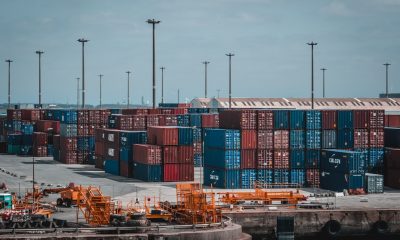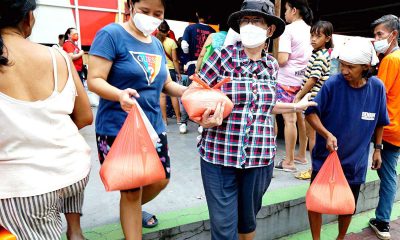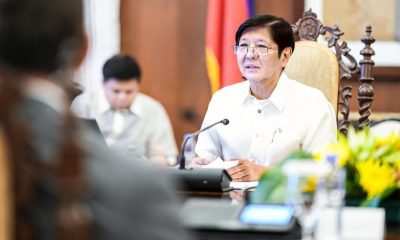Canada News
Elections Canada wants no part in organizing leaders debates during campaigns

Elections Canada should not be involved in anything that could be seen as influencing the outcome of a campaign (Pixabay photo)
OTTAWA — Canada’s independent elections watchdog wants no part in organizing leaders’ debates during federal elections.
Elections Canada should not be involved in anything that could be seen as influencing the outcome of a campaign, acting chief electoral officer Stephane Perrault told a House of Commons committee Thursday.
“I strongly believe that Elections Canada must be insulated from any decision-making regarding leaders’ debates so as to remain above the fray,” he said.
“Debates are an important element of the campaign and often contribute to defining the ballot-box issues … The chief electoral officer should not be involved in matters that could be perceived as having an influence on the orientation of the campaign or the results of the election.”
The committee is examining the idea of appointing an independent commission or commissioner to organize televised leaders’ debates during federal election campaigns, as promised by Prime Minister Justin Trudeau during the 2015 campaign.
The debates became the subject of heated controversy in the last campaign after the then-ruling Conservatives signalled that Stephen Harper would not take part in the traditional two televised events — one English, one French — organized by a consortium of the country’s major TV networks.
In the end, Harper and the other leaders took part in 5 debates organized by various media and social media outlets, including Maclean’s magazine, the Globe and Mail, Google and Facebook, as well as a consortium-organized French debate and another organized by Quebec’s TVA network.
Green party Leader Elizabeth May was invited to participate in just two of the five debates while Bloc Quebecois Leader Gilles Duceppe was invited strictly to the two French ones.
If the government opts to create an independent commission, Perrault said it should set out clear criteria as to which party leaders are to be allowed to participate in debates, leaving the commission itself little or no discretion in the matter.
“This question has given rise to significant controversy over the years. An independent commission should not be mired in controversies regarding inclusion, especially in the middle of a campaign.”
Perrault also warned that the exclusion of smaller parties in future might run afoul of the Charter of Rights and Freedoms.
Some small parties have in the past gone to court to challenge their exclusion from the debates. But those cases failed because the debates were considered “essentially private events” that were not subject to scrutiny under the charter, he said.
“This would likely no longer be the case if the state, or an entity created by the state, were to play a role in organizing the debates.”
While he’d give the commission little leeway to decide who can participate, Perrault said it should have “broad latitude” to decide the format and “editorial aspects” of the debates, such as the choice of moderator and questions to be asked. Such latitude is necessary given the rapid evolution of the mainstream media and social media landscape, he said.
Representatives of the traditional network consortium — CBC, CTV, Global Television and Radio-Canada — said they’re willing to work with an independent commission. But they argued that most decisions should be left up to them since, combined, they reach the most Canadians, adhere to journalistic standards and have expertise in producing shows that people will actually watch.
The consortium did agree it would be helpful if the government was to legislate a requirement for a minimum number of debates during each election campaign, which would compel party leaders to participate.
That would do away with what CBC’s Jennifer McGuire described as “the biggest flaw in the current system”: the secret negotiations in which parties threaten not to participate unless the terms of the debate benefit their respective leaders.
“Each party pushes for every edge it can get, from where and when the debate takes place, to who can take part, to what format is acceptable,” she told the committee. “They threaten to withhold their participation as they seek terms to give them advantage.”
The consortium representatives faced some pointed questioning by Conservative MP John Nater, who repeatedly asked why the major networks refused to broadcast the debates hosted by other media outlets in 2015. He accused them of acting “like a kid in the schoolyard, that if you don’t get your way, you’re not playing.”
Troy Reeb of Corus Entertainment, which owns Global Television, bluntly said there was no way the networks were going to “willy-nilly take a product” produced by another outlet, over whose standards they’d had no input, and put it on the air — especially not when it involved splashing the logo of the rival outlet all over the set.
The consortium would have no way of knowing what trade-offs the other outlets made behind the scenes to ensure participation by all the leaders at a time when “we knew for a fact, as members of the consortium, that one party in particular was seeking very friendly terms” in return for its participation, Reeb added.





















